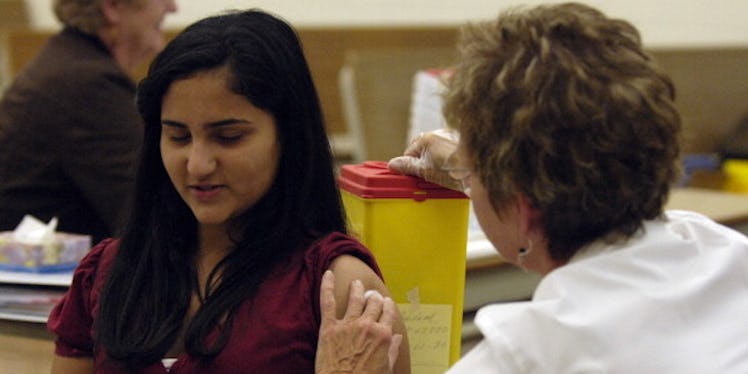
Why You Should Definitely Get The HPV Vaccine While You Still Can
For those who aren't in the know, the human papillomavirus, or HPV, is the most common STI a person can get.
Even if you haven't personally been affected by HPV, the chances are good that you know someone who's either personally experienced the condition themselves, or at least knows someone who has.
For a little bit of context, while there are over 100 strains of related viruses classified as HPV, the ones that get the most press, so to speak, can cause warts, while others have the potential to cause cancer of the cervix, vagina, vulva, anus, mouth, throat, or penis.
Overall, there are about 40 strains that can affect the area in and around your genitals.
There are two major types of HPV that cause most cases of warts, and two other strains that cause most of the serious forms of cancer.
In many cases, people show no symptoms at all of the condition, and HPV often goes completely undetected without causing any major problems, as your body can fight off most strains.
In fact, most sexually active people will actually contract an HPV virus at some point in their lives -- they just don't even know it.
But, while both men and women can be affected by the strains of HPV that cause cancer and warts, currently, the only approved screening for HPV is testing women for cervical cancer.
Yet another responsibility to fall on our shoulders, amirite ladies?
According to the CDC, there are around 17,500 women and 9,300 men affected by HPV-related cancers in the US each year -- and most of these cases could be prevented with the HPV vaccine.
Both women and men can get the vaccination that prevents cancer and wart-causing HPV infections -- a privilege we're all very lucky to enjoy.
Yet, despite that, four out of 10 adolescent girls and six out of 10 adolescent boys haven't started the recommended vaccination series.
It's recommended people get these vaccinations, a series of injections given over several months, around age 11 or 12, but women can get them until they are 27, while men can either get them until they are 22, or until they are 27, if they have sex with other men or have weakened immune systems.
So, clearly, time is of the essence, people.
Elite Daily spoke with Dr. Jessica Shepherd, OBGYN and U by Kotex FITNESS partner, who recommends all adolescents should get the vaccine as a preventative measure.
In order for the vaccine to "produce the strongest immune response," Dr. Shepherd says you should ideally get the shots when you are a preteen, around age 12 or so.
Still, even if you haven't begun your series of injections, it's likely that you still have time.
I know you love to procrastinate, but for real, the clock is ticking.
Moral of the story? Just get your damn shots, y'all.